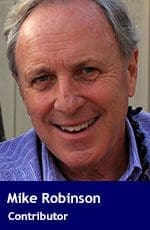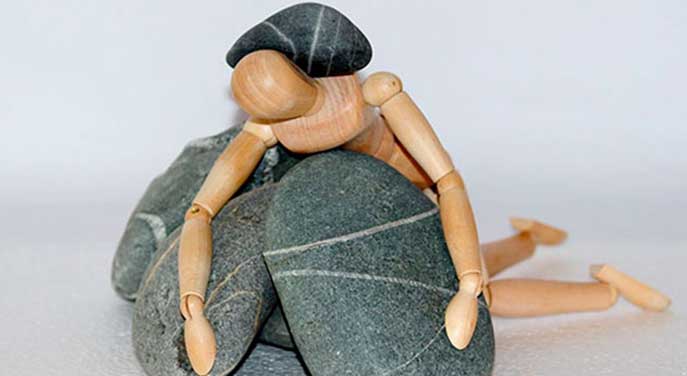 If there is one big theme over this summer’s Facebook posts, coffee discussions, e-mails with friends and family, and media over-exposure, it’s the reality that it’s all becoming too much!
If there is one big theme over this summer’s Facebook posts, coffee discussions, e-mails with friends and family, and media over-exposure, it’s the reality that it’s all becoming too much!
Horrific Islamic State attacks, racialized police shootings and revenge ambushes, the consecutive parade of hotter and hotter months as climate change ups the ante against combustion of carbon anywhere, millennial angst over contract employment and old blue collar white man angst against everyone else and all of their causes. If this isn’t enough, there is the divisive, infantile, racist, xenophobic, homophobic, plagiarizing Trump campaign for the most powerful office in the world.
How much more of this are we supposed to take?
In desperation, I recently wrote to a couple of U.S. pals I’ve known since university days. Both have tongue-in-cheek asked me to keep a few beds ready at our house in case Trump gets elected. They also send thoughtful comment on the popular socio-political memes buffeting their country: blue collar revolt against progressive anything, racial angst centred on Obama’s failure to create a post-racial society of equality and opportunity, and terrorism in the homeland.
On the topic of blue-collar angst, they wonder just how Trumpism can ameliorate any blue-collar concerns. What evidence is there that he understands any aspect of blue-collar life? Or that he has a plan to recreate the jobs Middle America lost to free trade and the globalizing economy? Or can deliver on the nebulous promise to “Make America Great Again?” Or re-establish traditional 1950s’ Christian family values? Or, perversely, re-establish traditional Caucasian male privilege in a multi-racial, gender-equal, LGBTQ world?
On each of these fronts, Trump is at best a poseur. Nothing in his background suggests workplace struggle, thoughtful programs of job creation, an understanding of small town blue-collar life, or any aspect of Christian fundamentalism. He is a trust fund kid with multiple divorces and maximal selfishness as his core life value. At best he could be said to represent a strong effort at buttressing the decline of caucasian male privilege. In fact, that may be his strongest suit. The trouble is, it only fits a discordant rump of poorly educated white guys who no longer comprise a majority of anything.
Trumpism aside, the persistent racial divide in the U.S. and much of the European Union is growing and festering. One of my U.S. pals says this is especially hard for people who saw in the Obama presidency a hope for the creation of a post-racial society.
Obviously that hasn’t happened. In fact, the current upswell of horrific U.S. gun violence underscores the persistence of old ways and deeply held racist beliefs. This doesn’t mean no progress has been made, but it illustrates just how difficult it is to change perceptions and herald progress. The process for many is exhausting.
And we haven’t even touched terrorism yet. It touches us all, even in its absence. As a Canadian who never travels to war zones or even the EU, I know two people who have lost their lives unspeakably in Afghanistan and the Philippines to young men whose motivations I will never understand. I truly wonder if they even understand in human terms what they have done?
Enough. We all have to learn how to cope in this emotionally exhausting time. I am channeling my grandfather right now: Capt. B.O. Robinson of the Royal Sussex Regiment. He went over the top in the Battle of Passchendaele in August 1917, and was one of a half-dozen members of his company to survive withering German machine gun fire. He lost his right eye and suffered major facial trauma. But he lived.
He spent the rest of his life, as he put it, “Advancing my impossible causes!” He started the first Cub pack and Scout troop in Vancouver’s Downtown Eastside in the 1930s at the height of the Great Depression. He sang in the chorus of locally produced Gilbert and Sullivan operettas. He studied Botany and Fine Arts at UBC as an 80-year-old. In short, having faced the worst that mankind could offer, he soldiered on as a devotee of his enthusiasms.
He never talked of Passchendaele. Instead he lived his values, and shared his passion for life. Maybe that is the best we can do now.
Mike Robinson has been CEO of three Canadian NGOs: the Arctic Institute of North America, the Glenbow Museum and the Bill Reid Gallery. Mike has chaired the national boards of Friends of the Earth, the David Suzuki Foundation, and the Canadian Parks and Wilderness Society. In 2004, he became a Member of the Order of Canada.
The views, opinions and positions expressed by columnists and contributors are the author’s alone. They do not inherently or expressly reflect the views, opinions and/or positions of our publication.


